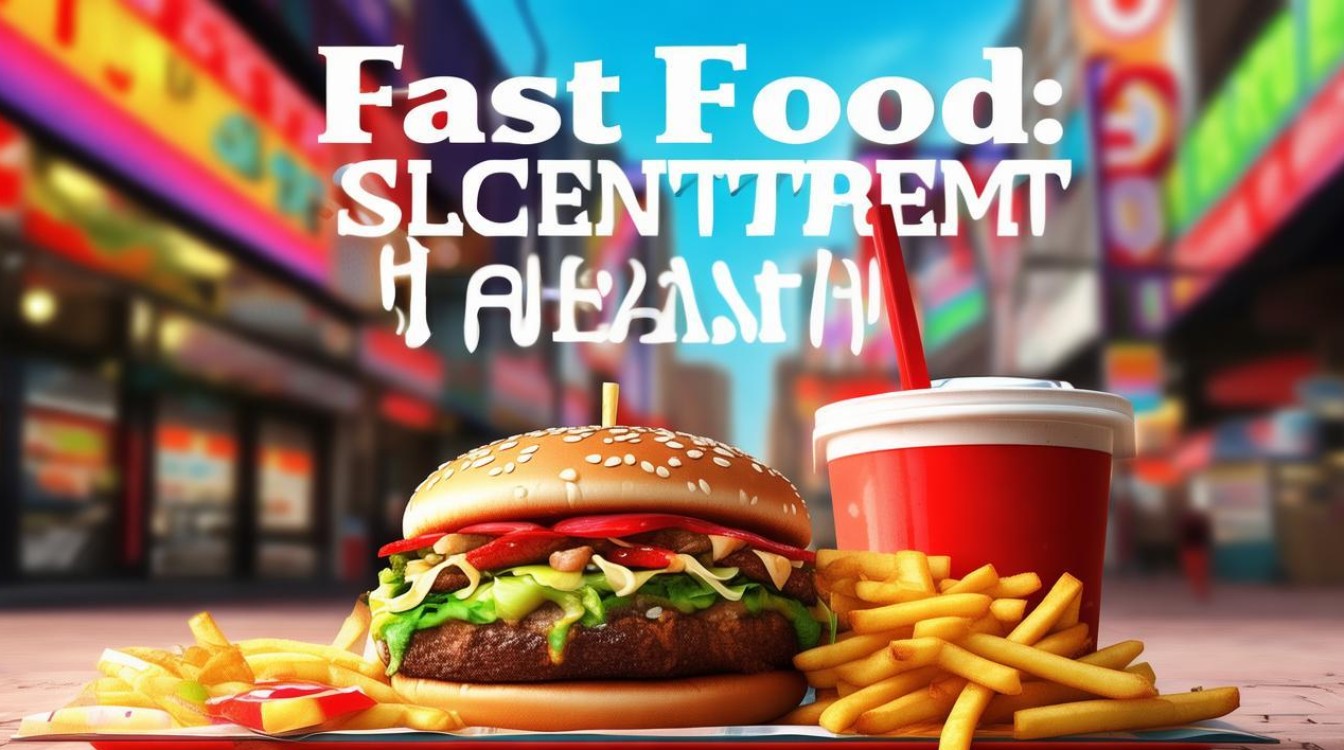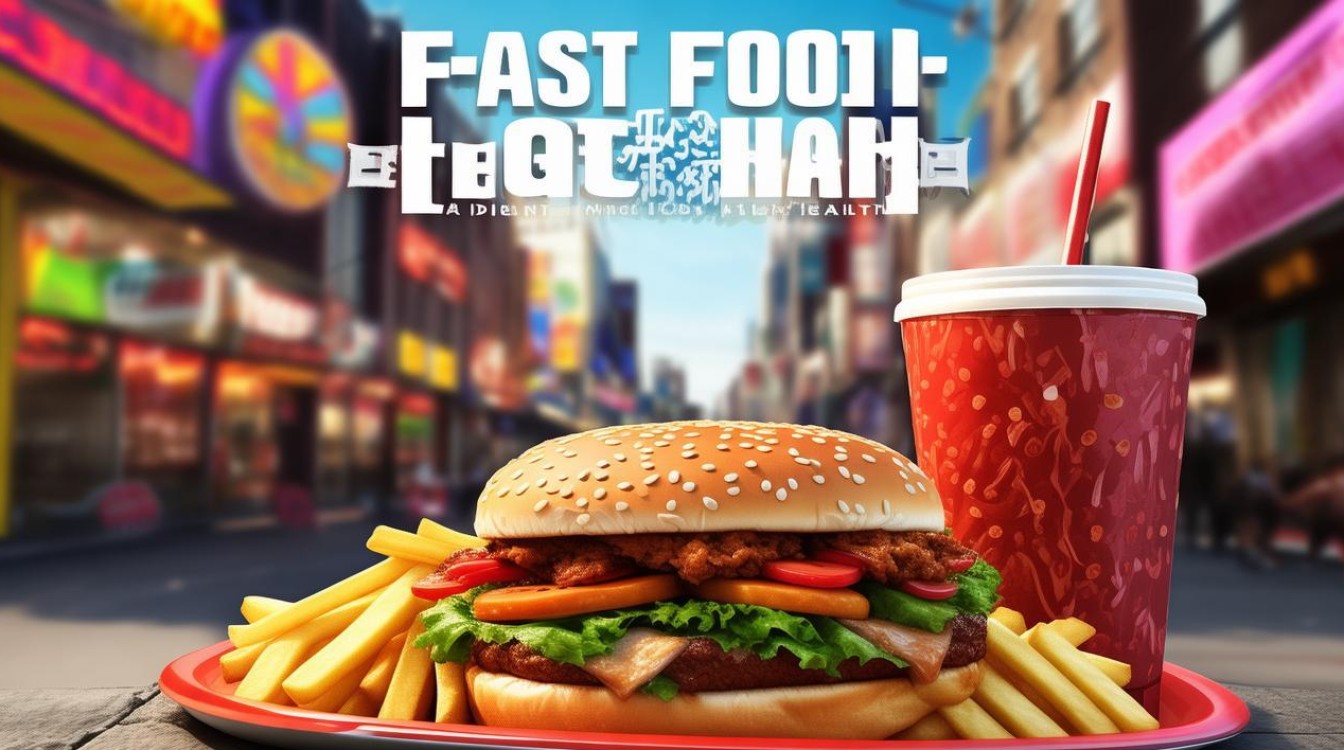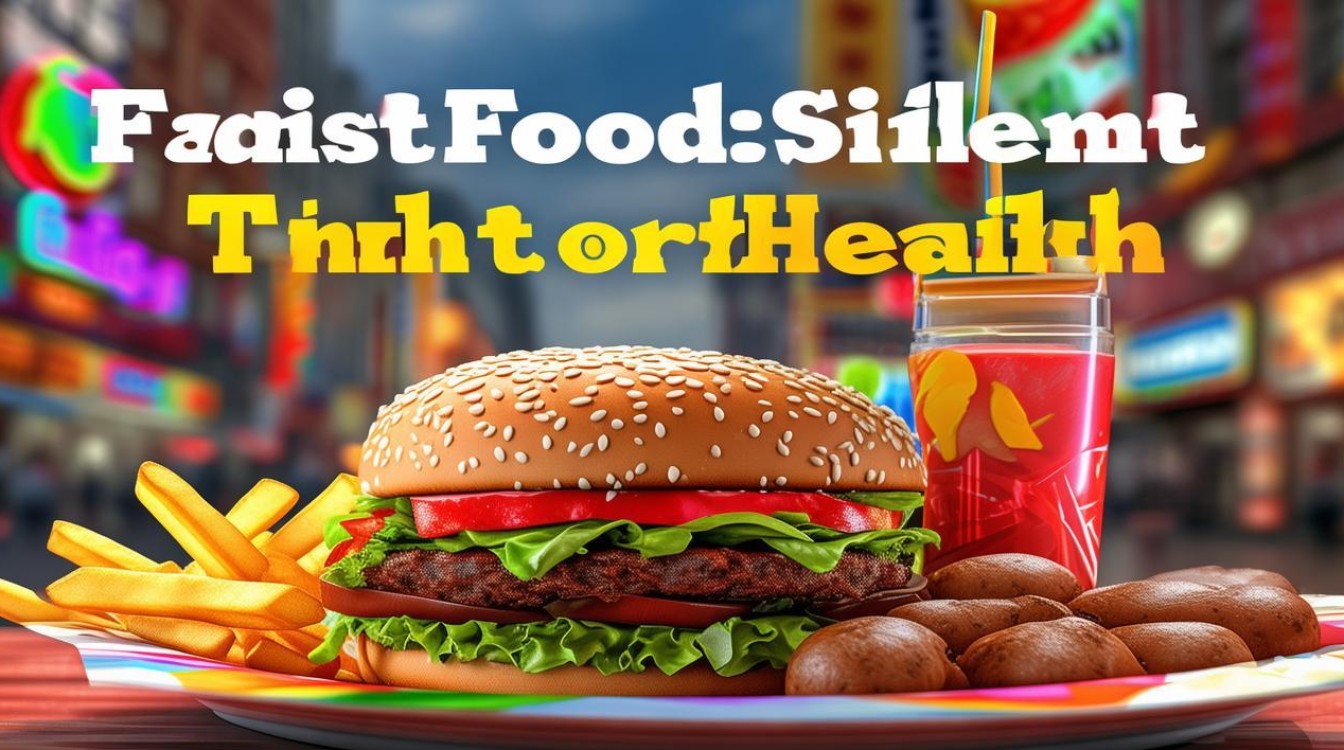The rise of fast food has transformed global eating habits, offering convenience at the cost of nutrition. While these meals save time, their long-term effects on health are alarming. From obesity to chronic diseases, the dangers of fast food demand urgent attention.

Nutritional Deficiencies and Empty Calories
Fast food is often high in calories but low in essential nutrients. A typical burger-and-fries meal packs excessive fats, refined carbs, and sodium while lacking fiber, vitamins, and minerals. Regular consumption leads to malnutrition, even in individuals who appear well-fed. Processed ingredients strip food of natural benefits, leaving the body starved of real nourishment.
Studies show that diets heavy in fast food correlate with deficiencies in iron, calcium, and vitamin C. Over time, this weakens immunity, bone health, and cognitive function. Children are especially vulnerable, as poor nutrition hampers growth and development.
Obesity and Metabolic Disorders
The link between fast food and obesity is undeniable. High sugar, unhealthy fats, and oversized portions disrupt metabolism. Sugary drinks and fried items spike blood glucose, forcing the pancreas to overproduce insulin. Repeated insulin surges cause resistance, a precursor to type 2 diabetes.
Moreover, trans fats—common in fried fast food—clog arteries and elevate bad cholesterol (LDL). This combination fuels weight gain and cardiovascular diseases. The World Health Organization warns that obesity rates have tripled since 1975, with fast food culture as a major contributor.
Heart Disease and Hypertension
Excessive sodium in fast food is a silent killer. A single fast-food meal can exceed the daily recommended salt intake, straining the heart and blood vessels. Chronic high sodium intake leads to hypertension, a leading cause of strokes and heart attacks.

Additionally, the abundance of saturated and trans fats accelerates plaque buildup in arteries. This narrows blood flow, raising the risk of coronary artery disease. Research confirms that frequent fast-food eaters face a 20% higher chance of heart-related deaths.
Digestive Problems and Gut Health Decline
Fast food lacks dietary fiber, crucial for digestion. Without fiber, the gut struggles to process food, leading to constipation, bloating, and irritable bowel syndrome (IBS). Artificial additives and preservatives further harm gut bacteria, weakening the microbiome linked to immunity and mental health.
A disrupted gut environment also triggers inflammation, worsening conditions like acid reflux and gastritis. Over time, poor digestion can escalate into colorectal cancer, as processed meats in fast food are classified as carcinogens by the WHO.
Mental Health and Cognitive Decline
Junk food doesn’t just harm the body—it clouds the mind. High sugar intake is tied to mood swings, anxiety, and depression. Blood sugar crashes after a fast-food meal cause irritability and fatigue.
Worse, diets rich in processed fats impair brain function. Omega-6 fatty acids, abundant in fried foods, promote brain inflammation, while omega-3s (found in fish and nuts) are scarce. This imbalance is linked to memory loss and a higher risk of Alzheimer’s.

Addiction and Poor Eating Habits
Fast food is engineered to be addictive. Sugar, salt, and fat trigger dopamine release, creating cravings akin to drug dependence. Many people find it hard to quit despite knowing the risks, trapped in a cycle of unhealthy eating.
This addiction undermines efforts to adopt balanced diets. Home-cooked meals become rare, and whole foods seem less appealing. The convenience of fast food overrides the discipline needed for long-term health.
Environmental and Economic Costs
The harm extends beyond personal health. Fast food production relies on factory farming, contributing to deforestation, water pollution, and greenhouse gas emissions. The industry’s demand for cheap meat and palm oil fuels ecological destruction.
Economically, healthcare costs soar as fast-food-related diseases burden systems. Diabetes treatments, heart surgeries, and obesity management drain resources that could prevent illnesses instead.
Breaking the Cycle
Awareness is the first step. Reading nutrition labels, cooking at home, and choosing whole foods can mitigate risks. Governments must enforce stricter advertising regulations, especially targeting children. Schools and workplaces should promote healthy cafeterias over vending machines stocked with junk.

Fast food isn’t just a meal—it’s a lifestyle choice with dire consequences. Opting for nutrient-dense foods isn’t about perfection; it’s about respecting the body’s needs. Every small change reduces dependency on quick fixes that compromise well-being.
The convenience of fast food is a trade-off with health. Prioritizing real nourishment over speed ensures a stronger, sharper, and more vibrant life. The choice is clear: break free from the fast-food trap before it breaks you.

